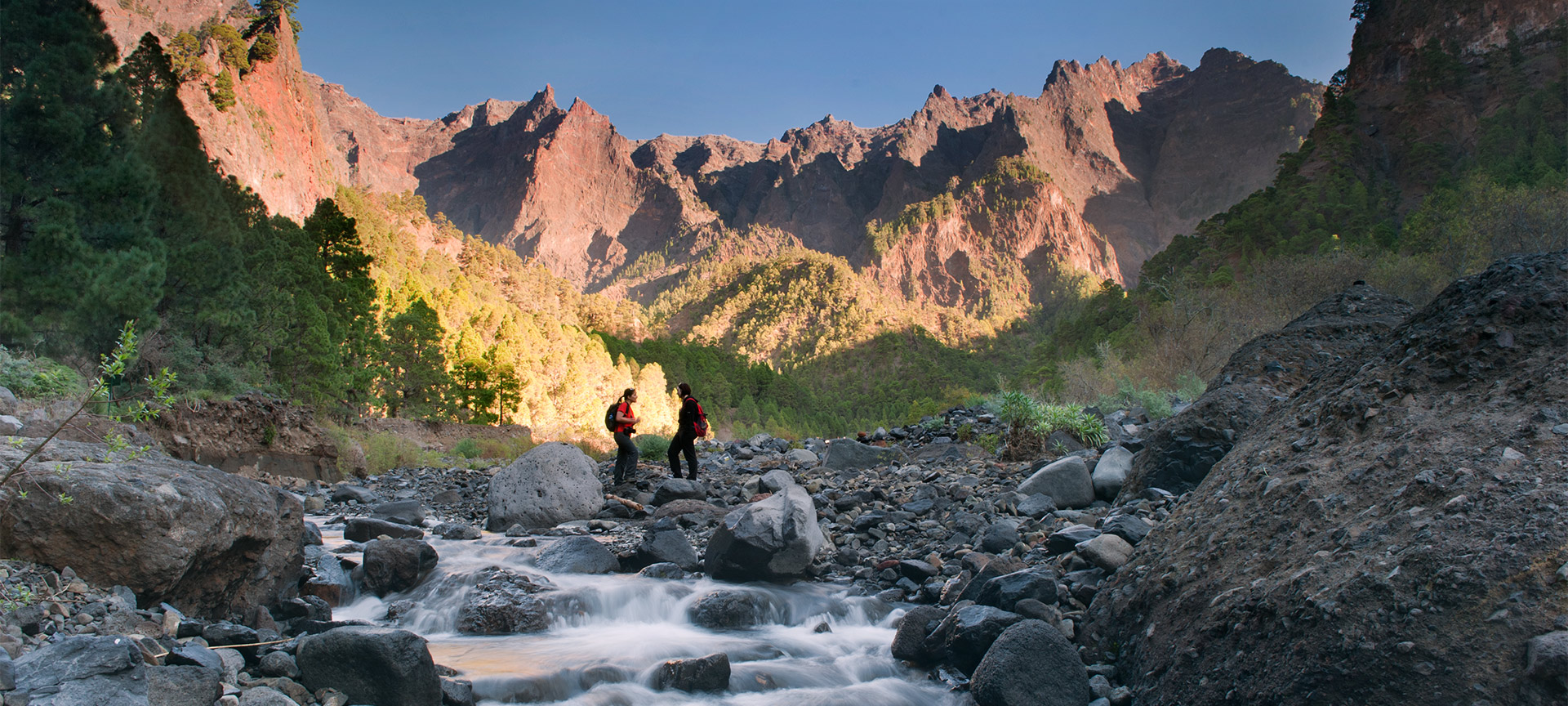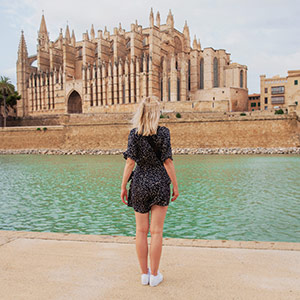
Caldera de Taburiente National Park
A huge “garden” under the stars
Caldera de Taburiente is waiting for you on the island of La Palma, nicknamed “The Green Island”, named after the volcanic crater that occupies the central area of the island. Thanks to it, a unique ecosystem is created where the water produces lush vegetation in the lower part of the national park. A real oasis in which leafy forests coexist with the breathtaking views that the peaks of La Palma offer, making it an unforgettable setting.
Caldera de Taburiente National Park
It is situated on the island of La Palma (Canary Islands).
La Palma (Canarias)
La Palma (Canary Islands):
Carretera General de Padrón, 47
38750 Paso, El, La Palma (Canary Islands)
Activa JS
In images
What you need to know
-
What you will find
Caldera de Taburiente forms a natural shelter where trees like the Canary Island Pine and plants like St John's Wort have been rooted for thousands of years. There are also laurel forests, subtropical vegetation frequently found in the Canary Islands, which contrast starkly with the higher parts of the island and their volcanic landscapes. Similarly, from the Caldera you can enjoy some of the best views of the island. Viewpoints like La Cumbrecita or Los Andenes at an altitude of more than 1,287 and 2,000 metres, respectively, offer panoramic views of La Palma.
-
Routes around the Park
At the Caldera de Taburiente visitor centre you can find practical information such as leaflets, routes and maps. You can enjoy several routes that cross the Park, all of which are signposted. PR-LP 13, the most popular outer, which starts at Los Llanos de Aridane or, for a shorter alternative, at the Brecitos natural viewing point. You get the feeling of entering the cone, protected by its enormous circumference. This route continues allowing you to travel through the natural exit of the park, the Barranco de las Angustias and admire places such as the famous coloured waterfall or the La Desfondada waterfall, already inside the protected area.Map of Caldera de Taburiente National Park
-
Don't leave without...
Camping in the Caldera de Taburiente National Park is possible. To do so, you need apply for the necessary permit and only stay the number of nights granted. Bear in mind that you must take all the necessary material (tent, sleeping bag, food, etc.).If for some reason you cannot enter the National Park, you can also get panoramic views at the Cumbrecita natural viewing point, accessible by car (time slot subject to (authorisation), from 8.30 to 16.00). From here, you can walk small routes, like Lomo de las Chozas.You can also get an impressive view of the National Park from Roque de los Muchachos, the highest point on the island (at an altitude of 2,426 metres) or any natural viewing point along the road such as Los Andenes. You will feel the park's majesty at your feet. You will find the Roque de Los Muchachos Observatory here, which is well worth a stop to admire its telescopes; you should book your visit here. Roque de los Muchachos cannot be accessed at night because this is a work area for astronomers. Don't forget to visit its modern Visitor Centre, in which you will learn everything there is to know about this area.Along the LP-4 road, which takes you to this point, the highest on the island, between Pico de la Nieve and the detour to Roque, you can enjoy beautiful sunsets but, above all, its starry nights. Thanks to Caldera's land formation, the clouds act as a natural screen against the city lights, leaving a clear night sky filled with stars for you to enjoy.
Travel plans for inspiring you










